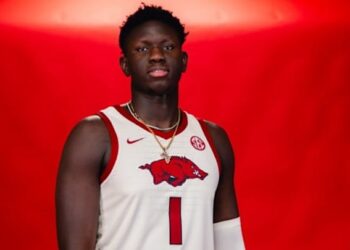The Chicago Bears, one of the NFL’s most storied franchises, have made several significant financial commitments over the years to attract and retain top talent. These investments reflect the team’s dedication to building a competitive roster and achieving success on the field. Below is an overview of the largest contracts in Bears history, highlighting the players who secured these substantial deals and their impact on the franchise.
1. Khalil Mack – 6 Years, $141 Million
In 2018, the Bears executed a blockbuster trade with the Oakland Raiders to acquire All-Pro linebacker Khalil Mack. Shortly after the trade, Chicago signed Mack to a six-year, $141 million contract extension, making him the highest-paid defensive player in NFL history at that time. The deal included $90 million in guaranteed money.
Mack’s arrival had an immediate impact on the Bears’ defense, elevating them to one of the league’s elite units. His presence contributed to Chicago’s NFC North division title in 2018, showcasing the value of investing in a premier pass rusher.
2. Jay Cutler – 7 Years, $126.7 Million
Quarterback Jay Cutler signed a seven-year, $126.7 million contract extension with the Bears in 2014. This deal underscored the franchise’s commitment to securing a long-term solution at the quarterback position. Cutler’s tenure with Chicago was marked by flashes of brilliance but also inconsistency, leading to mixed results on the field.
While Cutler set several franchise passing records, the team’s overall performance during his tenure did not meet expectations, sparking debates about the allocation of resources and the challenges of building around a high-priced quarterback.
3. Montez Sweat – 4 Years, $98 Million
In 2024, the Bears signed defensive end Montez Sweat to a four-year, $98 million contract, with an average annual value of $24.5 million, making him one of the highest-paid players in franchise history.
Sweat’s addition aimed to bolster the Bears’ pass rush and overall defensive prowess. His performance has been instrumental in enhancing the team’s defensive capabilities, reflecting the organization’s strategy of investing heavily in defensive talent to maintain a competitive edge.
4. Julius Peppers – 6 Years, $84 Million
In 2010, the Bears made a significant splash in free agency by signing defensive end Julius Peppers to a six-year, $84 million contract. Peppers’ arrival was pivotal in revitalizing Chicago’s defense, contributing to the team’s appearance in the NFC Championship Game during the 2010 season.
Peppers’ tenure with the Bears solidified his reputation as one of the premier defensive ends in the league, and his impact was felt both on the field and in the locker room, providing veteran leadership to the defensive unit.
5. Jaylon Johnson – 4 Years, $76 Million
Cornerback Jaylon Johnson secured a four-year, $76 million contract extension with the Bears in 2024, averaging $19 million per season.
Johnson’s extension reflects the organization’s emphasis on strengthening the secondary and retaining young, homegrown talent. His development into a top-tier cornerback has been a key factor in the Bears’ defensive strategies, aiming to shut down opposing receivers and create turnovers.
6. Tremaine Edmunds – 4 Years, $72 Million
Linebacker Tremaine Edmunds joined the Bears in 2024 on a four-year, $72 million contract, with $50 million guaranteed.
Edmunds’ signing was part of a broader effort to enhance the linebacking corps with athleticism and versatility. His ability to cover ground and make impactful plays has been integral to the Bears’ defensive schemes, aiming to adapt to the evolving offensive strategies in the NFL.
7. DJ Moore – 3 Years, $60 Million
Wide receiver DJ Moore inked a three-year, $60 million contract with the Bears in 2024, averaging $20 million annually.
Moore’s addition addressed the need for a dynamic playmaker in the receiving corps. His speed and route-running abilities have provided a significant boost to the Bears’ passing attack, offering a reliable target for the quarterback and contributing to the offensive diversification.
Financial Implications and Team Building
The Bears’ willingness to commit substantial financial resources to key players underscores a strategic approach to team building. By investing heavily in both defensive stalwarts and offensive playmakers, the organization aims to create a balanced and competitive roster.
However, these large contracts also come with inherent risks, such as salary cap constraints and the potential for underperformance. The Bears’ front office must continuously assess the return on investment for these deals, ensuring that the financial commitments translate into on-field success.
The Chicago Bears’ history of substantial contracts reflects a commitment to attracting and retaining top talent in pursuit of excellence. While some investments have yielded significant dividends, others serve as lessons in the complexities of roster management. As the team moves forward, balancing financial commitments with strategic acquisitions will be crucial in achieving sustained success in the NFL.














